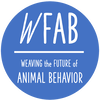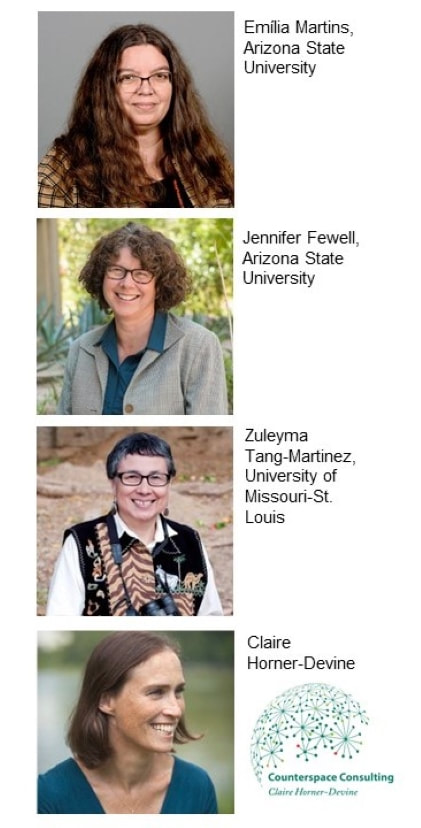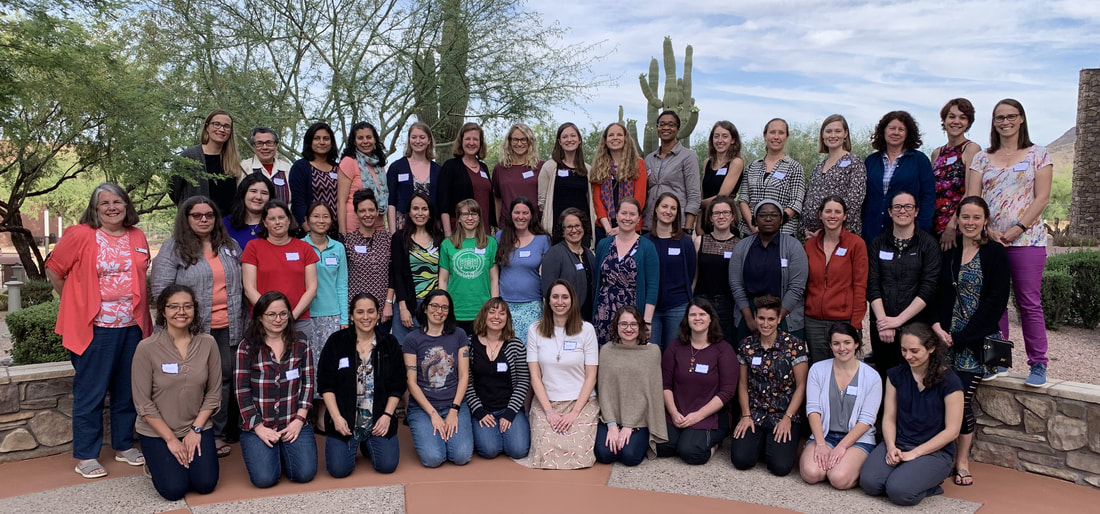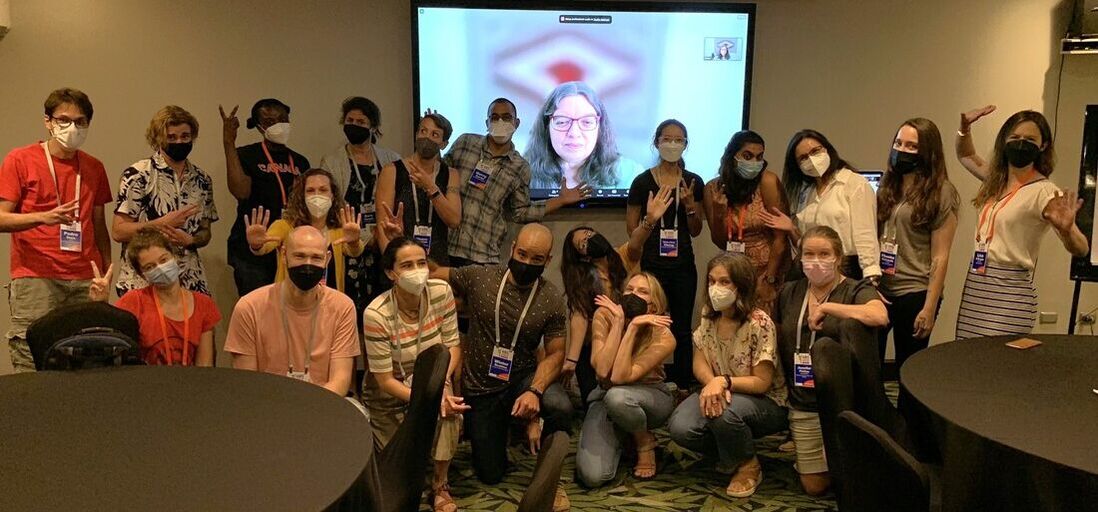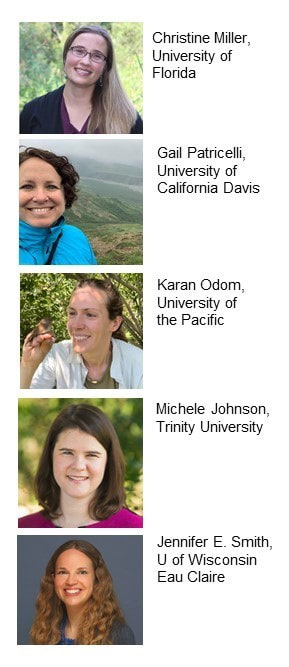The History of WFAB
|
Weaving the Future of Animal Behavior (WFAB) started in 2019 with a grant from the National Science Foundation led by Emília Martins, Zuleyma Tang-Martinez, and Jennifer Fewell. The workshops were developed with Claire Horner-Devine from Counterspace Consulting. Since 2023, the Animal Behavior Society (ABS) has generously supported WFAB pre-conference workshops.
WFAB is a professional development initiative focused on scientific advancement in the field of animal behavior and fostering a diverse, equitable, and inclusive scientific community, by providing support, mentorship, and networking opportunities for early-career researchers. The founding of WFAB in 2019 followed on the heels of similar initiatives, including Women Evolving the Biological Sciences, WEBS (Horner-Devine et al. 2016) and the BRAINS program (Yen et al. 2017). Together with WFAB, these initiatives focus on the critical transition from postdoctoral positions to permanent research and teaching positions. Elements central and crucial to our professional development workshops include, (1) strictly confidential discussions; (2) common social identity among participants (i.e., career stage and field of research); (3) sharing perspectives and strategies across career stages; and (4) establishing a national (and international) network and peer cohort through the formation of PoP circles. We offer a 3-part workshop series that includes two online meetings with participants and an in-person meeting the day before the Animal Behavior Society (ABS) annual meeting. Discussions and panels for postdocs and early career faculty address:
One of the most important functions of WFAB is to organize peer-mentoring circles (PoP circles) that frequently last far beyond the workshops. Early career researchers are organized into groups of 4 to 10. We guide them through a structured process of discussing their professional and personal challenges together. These PoP circles run bi-weekly over Zoom, often for multiple years. Such peer-mentoring circles are commonly empowering and transformative to participants. |
For more information, check out:
Yen, J.W., Horner-Devine, M.C., Margherio, C. and Mizumori, S.J., 2017. The BRAINS program: transforming career development to advance diversity and equity in neuroscience. Neuron, 94(3), pp.426-430.
Horner-Devine, M.C., Carrigan, C., Grant, C., Margherio, C., Mizumori, S.J., Riskin, E., Ivy, J.S. and Yen, J., 2022. Peer coaching circles for ongoing faculty development. Handbook of STEM Faculty Development, p.375.
Shelton, D.S., Delgado, M.M., Greenway, E.V., Hobson, E.A., Lackey, A.C., Medina-García, A., Reinke, B.A., Trillo, P.A., Wells, C.P. and Horner-Devine, M.C., 2021. Expanding the landscape of opportunity: Professional societies support early-career researchers through community programming and peer coaching. Journal of Comparative Psychology, 135(4), p.439.
Yen, J.W., Horner-Devine, M.C., Margherio, C. and Mizumori, S.J., 2017. The BRAINS program: transforming career development to advance diversity and equity in neuroscience. Neuron, 94(3), pp.426-430.
Horner-Devine, M.C., Carrigan, C., Grant, C., Margherio, C., Mizumori, S.J., Riskin, E., Ivy, J.S. and Yen, J., 2022. Peer coaching circles for ongoing faculty development. Handbook of STEM Faculty Development, p.375.
Shelton, D.S., Delgado, M.M., Greenway, E.V., Hobson, E.A., Lackey, A.C., Medina-García, A., Reinke, B.A., Trillo, P.A., Wells, C.P. and Horner-Devine, M.C., 2021. Expanding the landscape of opportunity: Professional societies support early-career researchers through community programming and peer coaching. Journal of Comparative Psychology, 135(4), p.439.
WFAB Current Leadership
In 2022 Christine W. Miller stepped into the role of Director of WFAB, taking the reins from the founders, Emília Martins, Zuleyma Tang-Martinez, and Jennifer Fewell.
Gail Patricelli is serving currently as the Director of WFAB, beginning in 2023. The 2024 three-part WFAB workshop series is being organized by Gail Patricelli, Karan Odom, Michele Johnson. The 2024 WFAB Reunion is being organized by Jennifer Smith. Claire Horner-Devine from Counterspace Consulting played a critical role in developing the program and remains an invaluable contributor! WFAB is a team effort! We welcome participants to help "pass it on!" helping to organize events or share their experience as a panelist! If you'd like to volunteer, please send us an email |
